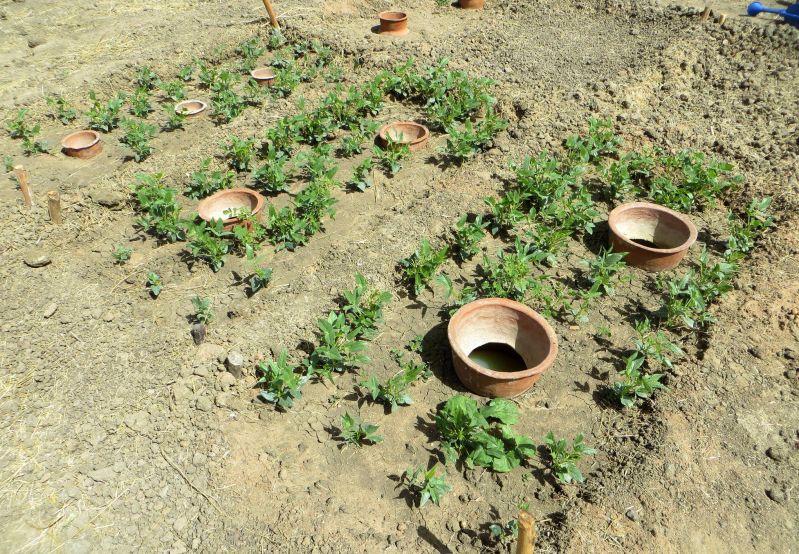Soil-based Filter Bricks Clean up Water for Moroccan Farmers
Published on by Water Network Research, Official research team of The Water Network in Academic
A home-made filter system using layers of soil and gravel cleans domestic waste water well enough to make it suitable for irrigation, a research team in Morocco has found.
The filter prototype, tested in Al Haouz, a rural district about 40 kilometres from Marrakech, removed a large amount of waste such as solid particles, organic pollution, nitrogen and fertiliser residue. The system was also successful at killing off coliform bacteria and other pathogens in the water including faecal matter, E.coli and streptococci bacteria.

Representative image, source: Wikimedia Commons
The filter system consists of a two-stage process that can be easily assembled with local material in water barrels. The researchers created filter ‘bricks’ from sandy soil, charcoal, sawdust and iron scraps, and packed these into the barrels with gravel. While running through the barrel, the water is filtered alternatively by the bricks and the gravel.
The experiment’s results were published on 13 October in the International Journal of Hygiene and Environmental Health. Laila Mandi, a researcher at Morocco’s Cadi Ayyad University and lead author of the paper, said the soil bricks on their own were good enough to filter organic waste and nutrients from the water. But when combined with the gravel, the two-stage system became effective enough to tackle pathogens.
She said the system could provide cheap and low-tech water filtration to rural, arid areas. “The cost of this technology is very low compared with systems like lagoon filters, wetlands and sand filters,” Mandi said.
It also has benefits such as simple maintenance, no frequent clogging and no energy requirements, she added. The expected lifetime of each filter system, if correctly maintained, is about 20 years.
The method could help recycle water in arid regions, such as the North African and Asian deserts, where water preservation is crucial for farmers and expensive, industrial water purification is not available.
The researchers worked with the people of Talat Merghen village to test the prototypes. They collected domestic waste water from 72 people in eight households. The water was stored in a holding tank, from where it was first fed into a settling tank – to separate sediment and silt – and then into the two-stage filter system.
Once optimised for flow load, the system removed around 90 per cent of pollutants, including around 95 per cent of nitrogen, a fertiliser residue.
The filtered water was not safe to drink, but was usable for agricultural irrigation and household chores. It could be made potable with additional treatment, such as chlorination or UV light, Mandi said.
Read full article: Sci Dev Net
Media
Taxonomy
- Agriculture
- Drip Irrigation
- Irrigation
- Irrigation and Drainage
- Treatment
- Treatment Methods
- Agriculture
- Consumption
- Irrigation & Water Management
- Irrigation and Drainage